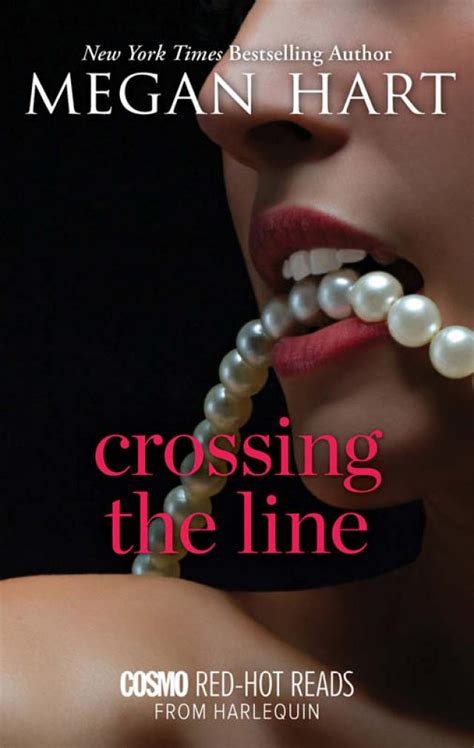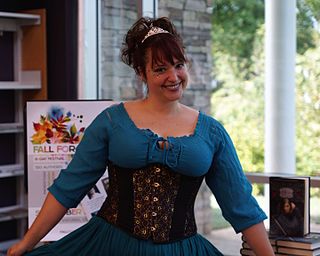A Quote by Megan Hart
We were broken, brittle and fragile. The question was, were we still precious to each other? Or, instead of everything falling into place, had it fallen into pieces?
Related Quotes
The leaves are falling, falling as if from far up,as if orchards were dying high in space.Each leaf falls as if it were motioning "no."And tonight the heavy earth is fallingaway from all other stars in the loneliness.We're all falling. This hand here is falling.And look at the other one. It's in them all.And yet there is Someone, whose handsinfinitely calm, holding up all this falling.
and even when I was broken the way sometimes one can be broken, and even though I had fallen, I found upon arising that I was stronger than before, that the glories, if I may call them that, which I had loved so much and that had been darkened in my fall, were shinning even brighter and nearly everytime subsequently I have fallen and darkness has come over me, they have obstinately arisen, not as they were, but brighter.
Best to let the broken glass be broken glass, let it splinter into smaller pieces and dust and scatter. Let the cracks between things widen until they are no longer cracks but the new places for things. That was where they were now. The world wasn't ending: it had ended and now they were in the new place. They could not recognize it because they had never seen it before.
Then, without any warning, we both straightened up, turned towards each other, and began to kiss. After that, it is difficult for me to speak of what happened. Such things have little to do with words, so little, in fact, that it seems almost pointless to try to express them. If anything, I would say that we were falling into each other, that we were falling so fast and so far that nothing could catch us.
They were still in the happier stage of love. They were full of brave illusions about each other, tremendous illusions, so that the communion of self with self seemed to be on a plane where no other human relations mattered. They both seemed to have arrived there with an extraordinary innocence as though a series of pure accidents had driven them together, so many accidents that at last they were forced to conclude that they were for each other. They had arrived with clean hands, or so it seemed, after no traffic with the merely curious and clandestine.
My parents were very, very close; they pretty much grew up together. They were born in 1912. They were each other's only boyfriend and girlfriend. They were - to use a contemporary term I hate - co-dependent, and they had me very late. So they had their way of doing things, and they reinforced each other.
It was a very aged, ghostly place; the church had been built many hundreds of years ago, and had once had a convent or monastery attached; for arches in ruins, remains of oriel windows, and fragments of blackened walls, were yet standing-, while other portions of the old building, which had crumbled away and fallen down, were mingled with the churchyard earth and overgrown with grass, as if they too claimed a burying-place and sought to mix their ashes with the dust of men.
Then there were the shabti, magical figurines that were supposed to come to life when summoned. A few months ago, I’d fallen for a girl named Zia Rashid, who’d turned out to be a shabti. Falling in love for the first time had been hard enough. But when the girl you like turns out to be ceramic and cracks to pieces before your eyes—well, it gives “breaking your heart” a new meaning.
I felt I was drawing close to that age, that place in life, where you realize one day what you'd told yourself was a Zen detachment turns out to be naked fear. You'd had one serious love relationship in your life and it had ended in tragedy, and the tragedy had broken something inside you. But instead of trying to repair the broken place, or at least really stop and look at it, you skated and joked. You had friends, you were a decent citizen. You hurt no one. And your life was somehow just about half of what it could be.
Once, I discovered the skulls of two impala rams, their horns locked into an irreversible figure-of-eight; the two animals had been trapped in combat, latched to each other during the battle of the rut. The harder they had pulled to escape from each other, the more intractably stuck they were, until they had fallen exhausted, to their knees, in an embrace of hatred that had killed them both.
Of all the ruinous and desolate places my uncle had ever beheld, this was the most so. It looked as if it had once been a large house of entertainment; but the roof had fallen in, in many places, and the stairs were steep, rugged, and broken. There was a huge fire-place in the room into which they walked, and the chimney was blackened with smoke; but no warm blaze lighted it up now. The white feathery dust of burnt wood was still strewed over the hearth, but the stove was cold, and all was dark and gloomy.
They were so much alike and they become best friends. It was a wonderful relationship. They respected each other, and they never put each other down. With every step they took together, they were happy. There was no envy or jealousy; there was no control, there was no possessiveness. Their relationship kept growing and growing. They loved to be together because when they were together, they had alot of fun. When they were not together, they missed each other.
There are so many things that can go wrong while performing. I've had violin strings break; I've had pants that were slowly falling down, and I'd have to pull them up in between every song; my hairpiece was falling out, so a big chunk of hair was just flapping around as I danced, and I've completely fallen on my butt.

































